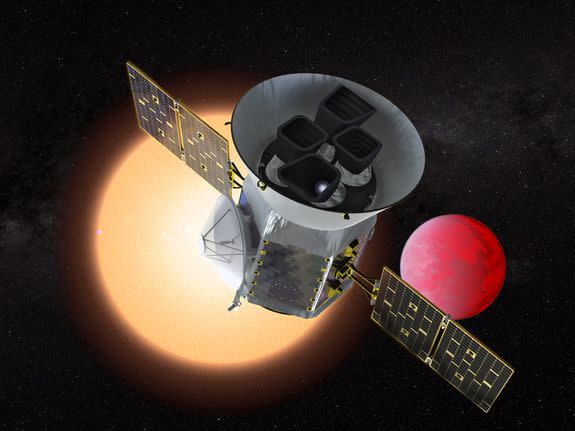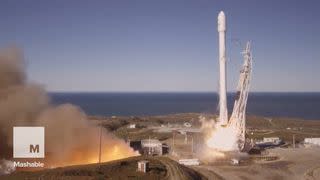SpaceX launches the planet-hunting TESS telescope Wednesday. Watch it live.

UPDATE: April 16, 2018, 4:20 p.m. EDT NASA and SpaceX are standing down from the expected launch of the TESS telescope on Monday. SpaceX is expected to launch the planet-hunting telescope to orbit on Wednesday instead due guidance, navigation, and control of the rcoket.
Standing down today to conduct additional GNC analysis, and teams are now working towards a targeted launch of @NASA_TESS on Wednesday, April 18.
— SpaceX (@SpaceX) April 16, 2018
Our updated story is below.
On Wednesday, SpaceX is scheduled to launch NASA's alien planet-hunting telescope TESS to orbit.
TESS — short for Transiting Exoplanet Survey Satellite — will search the sky to examine thousands of stars, sending vital information back to scientists on Earth to help them find planets that may be like our own. Such planets would be candidates for harboring life.
SEE ALSO: Here's how NASA's TESS will hunt for alien planets
The NASA mission is expected to launch to orbit atop a SpaceX Falcon 9 rocket from Cape Canaveral, Florida. You can watch the launch live in the window below.
About 10 minutes after launch, SpaceX is expected to land the first stage of the rocket back on Earth on a drone ship in the Atlantic Ocean. (You can watch that cool bit of high-flying rocket action in the window below as well.)
Once in space, TESS will embark on a two-year mission to survey about 85 percent of the sky, which holds about 20 million stars.
The spacecraft will look for minuscule dips in the light of those stars that would indicate that a planet passed between its star and the telescope, blocking out a bit of the star's light from TESS's perspective.
"...TESS will open our eyes to the variety of planets around some of the closest stars,” Paul Hertz, NASA's Astrophysics Division director, said in a statement.
“TESS will cast a wider net than ever before for enigmatic worlds whose properties can be probed by NASA’s upcoming James Webb Space Telescope and other missions.”

Image: nasa
By following up on TESS's finds with other telescopes like the James Webb, scientists might be able to learn even more about the newfound worlds.
Those future observations could help scientists piece together the compositions of the planets' atmospheres and maybe even establish whether they can host life as we know it.
But first, SpaceX has to get TESS safely to space.
WATCH: SpaceX did something amazing over the weekend

